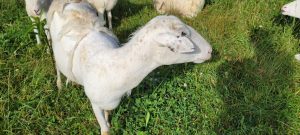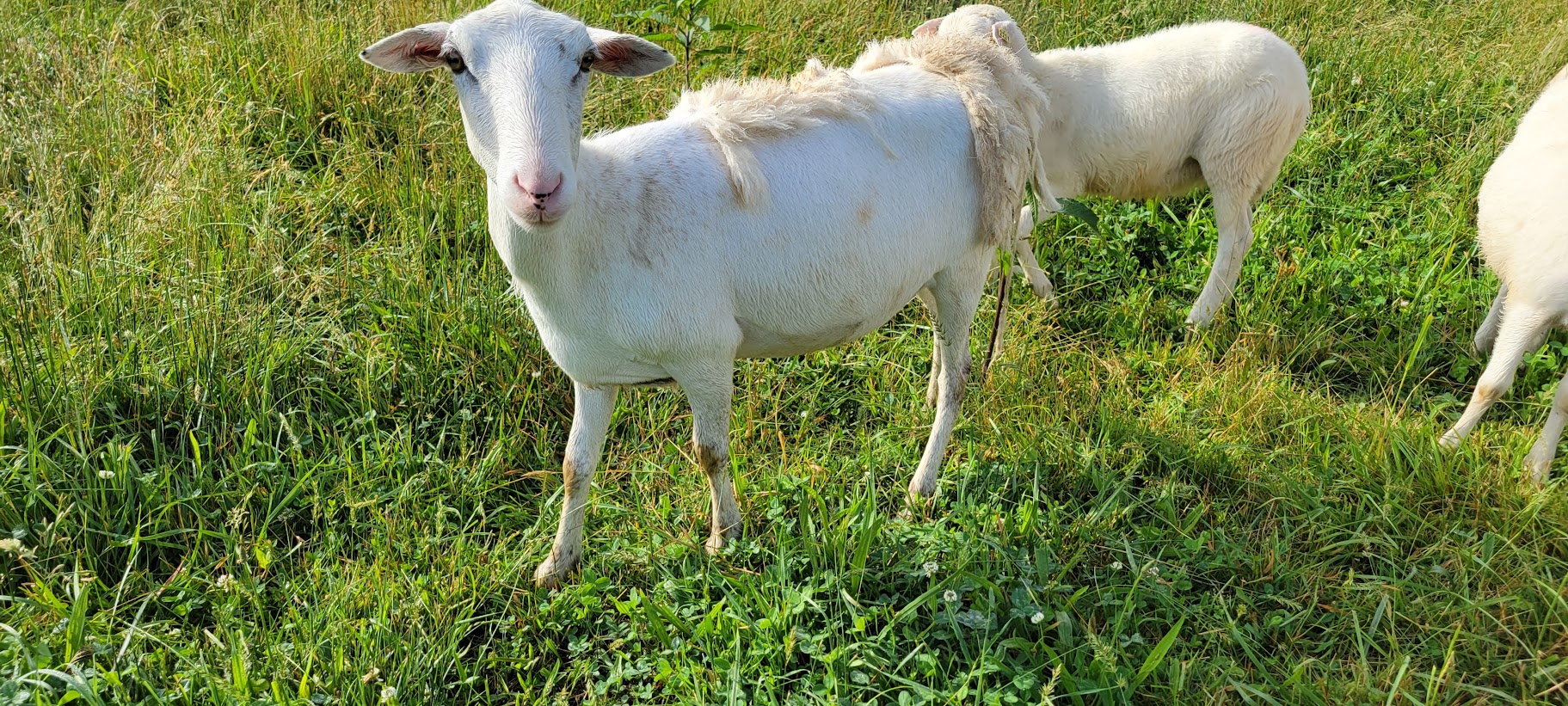Did you know you can find color in a St. Croix? World, meet Summit Farms Lillian, a 100% purebred, registered St. Croix Hair Sheep. She joined the farm this April, when she was still fluffy with her winter coat. I had no idea what was hiding beneath that fluff: red speckles! I had already noticed the small black patches on her face and ears, but that’s not unusual. Her brother, Summit Farms Devon, shares those black spots on his face. However, the red speckles that cover much of her body change things a bit. Lillian is important to my breeding program because Summit Farms no longer breeds St. Croix Hair Sheep, and those lines possess some genetic goldmines that I want to access.
St. Croix Can be Colored?
Yes! While most St. Croix Hair Sheep are pure white, or white with only a tiny spot of color that is less than the size of a quarter, one can indeed find St. Croix in different shades. This is because the breed is a landrace breed, and there were some red/brown sheep among the original imports. Some flock owners prefer black, brown, or red sheep and make breeding decisions to increase the amount of color among offspring. Others want only white St. Croix and cull any sheep that have more than a quarter sized area with color.
 How Does Color Affect Registration?
How Does Color Affect Registration?
There are two different breed registries for St. Croix Hair Sheep. One of the reasons they split was because of the whole color issue. St. Croix Hair Sheep Breeders, Inc. (SCHSBI) holds the belief that because color exists among the native and original sheep from the islands, it should be allowed among registered sheep. They do require breeders to indicate on the registration application if the sheep possesses color beyond the size of quarter. This allows people to easily identify those sheep on the registry database so that they can choose whether or not to include those genetics in their own flocks. On the other hand, St. Croix Hair Sheep International Association (SCHSIA) does not allow sheep with more than a quarter sized area of color to be registered at all.
 What Does this Mean for Lillian and Melwood Farm?
What Does this Mean for Lillian and Melwood Farm?
Because Lillian has color that exceeds a quarter sized area, I will notify the registrar so that her records indicate that she is indeed a “colored” St. Croix Hair Sheep. It is possible that her future offspring will also carry color. Time will tell. I do not make breeding decisions based on color. I base my selections on performance and conformation. That means that if Lillian’s lambs perform well, they may be selected as future breeding stock regardless of the presence or absence of color in their coats. I will be sure to inform any potential customers that Lillian and her offspring carry the color gene so that they can make informed decisions based on their interests.

